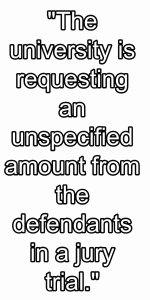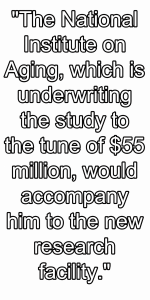When you hear of massive conspiracies aimed at purloining the latest data and information from leading national institutions, the imagination understandably trends towards envisioning secret foreign agents slipping through dark alleys in search of their dead-drop spots to relay critical information. Rarely however, do those thoughts conjure up images of the nation’s leading medical academics plotting to pilfer cutting-edge technology, scientific talent, and millions of dollars in research funding. Yet, that is exactly what Regents for UC San Diego allege in a conspiracy lawsuit leveled against rival University of Southern California (USC), and the nation’s leading Alzheimer’s disease researcher, Paul Aisen.
Alzheimer’s Research Data Goes AWOL
The court documents filed in San Diego County Superior Court, UC Regents charge that Aisen, along with eight of his fellow UC San Diego colleagues conspired to remove data and assets with them when they accepted new positions at  UC’s new Alzheimer’s facility based in San Diego. The suit alleges that Aisen, slated to head up the new institute, conspired to commit illegal acts including various computer crimes, contract interference, and actively engaged in a civil conspiracy to deny UC San Diego access to Alzheimer’s data resulting from the project.
UC’s new Alzheimer’s facility based in San Diego. The suit alleges that Aisen, slated to head up the new institute, conspired to commit illegal acts including various computer crimes, contract interference, and actively engaged in a civil conspiracy to deny UC San Diego access to Alzheimer’s data resulting from the project.
According to the complaint, this action placed UC San Diego at risk of losing out on hundreds of millions of dollars in private and governmental funding, and the university is requesting an unspecified amount from the defendants in a jury trial. At the heart of the motivation, the suit notes that Aisen’s actions were aimed at supplanting his former employer’s position in the field of Alzheimer’s studies.
Big Money and Big Stakes
While advanced educational institutions are notorious for poaching promising faculty-members from one another, the lawsuit accuses Aisen of making false or misleading statements to his team to induce them to follow him to the  new USC institute. Additionally, Aisen intimated that the study’s major funder, The National Institute on Aging, which is underwriting the study to the tune of $55 million, would accompany him to the new research facility. The National Institute on Aging denies that funding moved with Aisen and his team.
new USC institute. Additionally, Aisen intimated that the study’s major funder, The National Institute on Aging, which is underwriting the study to the tune of $55 million, would accompany him to the new research facility. The National Institute on Aging denies that funding moved with Aisen and his team.
For its part, USC denies any wrongdoing and regrets the UC San Diego decision to instigate the suit against Aisen and his team, citing the long held tradition of academic recruitment in which both institutions work collaboratively together during any transition.


